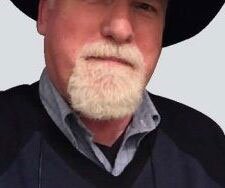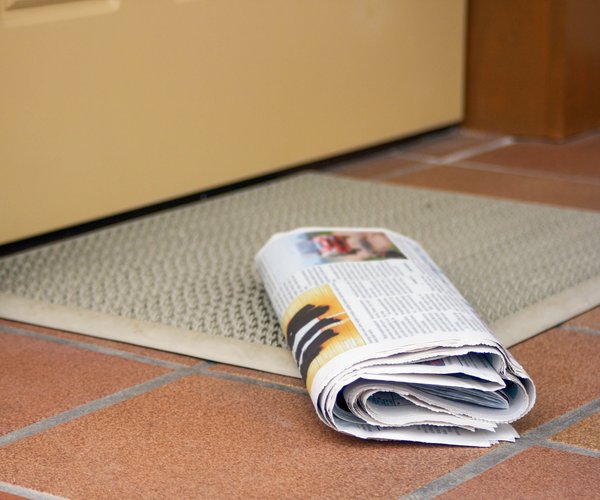By David Timmerman
newseditor@tds.net
When I started at the Republican Journal in March 1999, one of the first calls I received was from Steve Freese, at the time midway through his tenure as the 51st State Assembly Representative, and had climbed to Speaker Pro Tem of the Assembly one of the most powerful positions there is.
Freese, who passed away after a long battle with cancer this past week at the age of 64, had wanted to say hello, but he also wanted to set up a meeting to discuss what was going on in the State Assembly that spring.
He wanted to know what time I was available, and if he could come down to the RJ office to talk.
If any of the numerous interactions I had with Freese over the years could symbolize the man and representative he was, those first certainly could work, as if there was anything that would sum up Freese and his adult life, it was interacting with, and supporting his communities.
Freese sat on virtually all the different levels of local government and advocacy during his life. He started in 1980, when he was 20, joining the Jamestown Town Board, then also joining the Grant County Board of Supervisors, before being elected to serve in the Wisconsin State Assembly in 1990, where he served until 2007.
Freese left the Assembly to become the Executive Director of Circus World Museum in Baraboo, then became Chief Administrative Officer of the Wisconsin Farm Bureau Federation. His final role was to reestablish the Wisconsin Electric Cooperative Association as a stand-alone organization working on behalf of Wisconsin’s electric cooperatives, which he was CEO and President at the time of his passing.
Freese also had returned to the Town of Jamestown, where he had been the Chair until his passing.
“I cannot drive around southwest Wisconsin without seeing his face in the landscape,” said former State Sen. Dale Schultz, who worked with Freese for 16 years in the legislature, before they continued to interact when Freese was head of Circus World, which is where Freese went when he left the legislature.
Schultz said that he sees Freese in almost everywhere he looks because Freese was so involved in so many projects and programs in the area.
They were thrust into dealing with a large number of flooding that took place in southwest Wisconsin in their first years, With Freese and Schultz working with local officials on items, not just recovery and repair, but also flood mitigation to reduce future problems. Schultz reflected on the work with then-Darlington Mayor Bev Anderson on mitigation projects.
There was work on opening markets for ethanol, as well as sharing their love of history working on projects like the nascent efforts to restore the Potosi Brewery, or spotlight the Point of Beginnings.
“We were more effective because we joined together,” Schultz stated, adding that partnerships and respect were all hallmarks of Freese’s legislative career.
“The one thing about Steve Freese is he might have been the most respected member of the legislature during his time of being President Pro Tem,” Schultz continued. “Both political parties could see, in him, someone who cared about the institution. He was a calming influence.”
Freese did not wear partisan blinders, not looking to hold up work getting done in order to score political points, which probably led to that respect at different levels. One person who saw that effort to go across aisles to get things done is former Congressman Ron Kind, who worked with Freese on different issues.
“Even though I was a D and he was an R, we always worked well together as he believed in the idea of collective action,” Kind reflected.
Kind and Freese worked on a host of issues affecting rural electric cooperatives in Wisconsin. “He was a big believer in the power of collective effort at the local level as exemplified by the role our RECs played in our communities….. I will miss his friendship, and Wisconsin will miss his leadership,” Kind stated.
Freese participated in two of the most consequential pieces of legislations — W2 for welfare reform, as well as completely reshaping the state-school district partnership when it came to financing schools.
Schultz reflected on the efforts for school funding, both elementary/middle/high schools, as well as technical colleges and universities. “Both of us had a love of education,” Schultz reflected, noting that getting two-thirds funding for rural school districts was about the future, building future generations while reflecting on the legacy of the Wisconsin Idea.
One of the people who worked with Freese quite a bit was Scott Pedley, who was in his role as Lafayette County Sheriff during Freese’s tenure in the State Assembly. “He was just there whenever we needed him,” Pedley reflected Friday. “I could not have asked for a better legislator.”
During Freese’s time in the Assembly, several items came up related to law enforcement, and Pedley recalled working with him to actively deal with the growing methamphetamine problem in the early 2000s. “He was very aggressive in helping curtail meth,” Pedley recalled.
Pedley also worked with Freese to try and get county jailers to be recognized with protective status, which is what officers, wardens, parole agents, professional fire and EMS are.
A long-debated subject, which has been used to keep jailers out of unions, and reduce benefits, Pedley and Freese worked unsuccessfully to give those jailers status, which only was granted this past year, although with limitations.
“He actively worked to get that,” Pedley said of the efforts, even though several, including some county boards, actively fought the idea.
Pedley said that what made Freese a special politician was he was always working with the people. “He had this great sense of outreach. He was on top of his role,” Pedley continued. “We came to rely on him in the law enforcement community.”
“Steve was very good for southwest Wisconsin,” said Lafayette County Board Chair Jack Sauer, who was also board chair when Freese was in the 51st seat. He really looked out for the people of this area.”
“Whatever we needed help with, Freese was there,” Sauer continued, adding about how Freese got additional shared revenue for the county one year.
During certain summers, Freese conducted numerous town hall meetings in his legislative district, including four one summer in Lafayette County. These were not held because there was some big initiative he was looking to push, or were cover for campaigning (they took place in the off years to an election) - they were simply because he wanted to gauge what the people were thinking and needing.
“You cannot represent people unless you go and listen to them,” Schultz said of Freese’s philosophy on being an elected official.
“Steve came to more county board meetings, had more interactions than I have seen from any other elected official,” Sauer shared. Sauer quipped that could be because it was simpler in Madison then, but those interaction led to “Steve was more in tune with what we needed.”
When Freese left the State Legislature, it was to go to Circus World, which was in fiscally disadvantageous spot.
“Steve was a change agent,” Schultz reflected on Freese’s time at Circus World. Similar to his start in the Legislature, flooding struck Baraboo, and Freese was helping anchor down circus rail cars on the site, and working to help prevent further damage, and figuring out how to pay for that and other improvements.
“His ability to raise money was amazing,” Schultz stated.
Freese’s own thoughts
In the past few years, Freese was interviewed for several topics, from his fight with cancer, to his time at Circus World, to his continued fight to stand up for rural communities, both in the State Legislature.
When Freese was in his first year in the State Legislature, he joined other Republicans and Democrats to buck his own party’s governor, Tommy Thompson, over the issue of local shared revenue. When Thompson called to find out why Freese took to the floor and objected, helping the legislature to override Thompson’s veto of aid, one of the few blemishes on Thompson’s record, “I told him exactly why,” Freese said in 2022, explaining the need of such aids to small governments. After the override, the governor and the legislature worked on new road and bridge funding for local municipalities, which has continued to increase over the next three decades.
That fight could have led to resentment, but instead started a bond between Thompson and Freese that remained through the rest of Freese’s life. When Freese was dealing with his cancer fight, Thompson was one of the first people to call him, and they continued to talk while Freese battled.
“He talked to me a long time, giving me encouragement,” Freese reflected on last fall. “When he heard I was going back to work, the night before, he called again to say ‘way to go, way to fight this.’ What a kind man.”
Freese was fighting the same battle in 2022 he was fighting that first year in the State Legislature, revenue and aid for local municipalities like his beloved Jamestown. “With the levy limits, we can’t raise as much money as the town needs to operate,” Freese said two years ago, as the township had to deal with having to replace Lane Bridge which showed such significant cracking, it needed to be shut down and replaced, cutting off the Maryville Heights development.
Meanwhile, last year, Freese reflected on his time at Circus World when the final elephants were set to perform at the historic site. Freese stated he made the elephants a central part of how he brought Circus World out of debt, having them perform and take part in the return of the Great Circus Parade in Milwaukee, raising the awareness of the site.
Freese lived in a camper at Circus World for part of his tenure as Executive Director, getting to see all of the inner workings of the place, including seeing the ins and outs of the day for the elephants.
He got to see them train and rest, interact with the public in the ring, and on the elephant rides given before and after performances.
And yes, it is true, that elephants seem to never forget, Freese noted at the time.
Freese also participated in having 15 circus wagons of the more then 200 in the collection participate in the filming of the movie “Water for Elephants.”
Those efforts allowed more restoration of the other parts of the collection, including the Buffalo Bill Wild West Show ticket booth wagon, which at one point had been used as a chicken coop.
Freese loved Circus World, and one of the images he shared on the reflection was him on one of the elephants. “I took my family every year when I was in the legislature,” Freese said last fall.
For their part, Circus World shared the news of Freese’s passing with numerous pictures of him on the grounds over the years, with Freese’s wide grin in each one.
— David Timmerman is the editor of the Grant County Herald Independent, a branch of the Morris Newspapers of Wisconsin and sister paper to the Monroe Times. Steve Prestegard contributed to this story.





